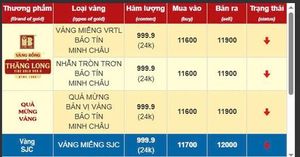As political tensions rise in Thailand, speculation surrounding potential cabinet reshuffles is becoming a hot topic. Observers believe that the current government, led by Prime Minister Phaetongtharn Shinawatra, will face significant challenges if it attempts to make changes to its cabinet. Five specific areas are considered off-limits for adjustment, reflecting the delicate balance of power within the coalition government.
Firstly, analysts suggest that the government will not remove the Bhumjaithai Party from its coalition. Despite the possibility of maintaining a parliamentary majority without Bhumjaithai, such a move would alienate conservative factions that provide crucial support to the party. This could destabilize the government further.
Secondly, there are indications that the government will refrain from inviting the Palang Pracharath Party to join the coalition. Although there have been rumors about this possibility, it is viewed as a tactic to pressure current coalition partners rather than a genuine intent to expand the government.
Another key point is the Ministry of Interior, which the Pheu Thai Party is reportedly eager to reclaim. However, the government is unlikely to make any moves to take this ministry away from Bhumjaithai, especially given its importance in managing internal affairs and its financial implications.
In addition, the government is expected to maintain the Ministry of Energy under the Ruam Thai Sang Chart Party, which is closely aligned with influential energy interests linked to former Prime Minister Thaksin Shinawatra. This is particularly significant as it would allow the party to manage energy resources effectively, a crucial aspect of Thailand’s economic landscape.
Lastly, any adjustments to the cabinet will likely be limited to the Pheu Thai Party itself, adhering to a style of governance that favors internal rather than external changes. If any coalition partners wish to make adjustments, it will depend on their own discretion.
The discussions around potential cabinet reshuffles arise amid broader concerns regarding the government’s economic performance. Following the Songkran festival, the government has faced increasing scrutiny over its economic policies, with many citizens expressing dissatisfaction with the current state of affairs.
Phaetongtharn has acknowledged the need to listen to feedback from both the public and party members but has emphasized that there is no immediate plan for a cabinet reshuffle. She stated, “Everything in this world is impermanent, even the position of Prime Minister,” reflecting a cautious approach to governance.
In a related development, the Deputy Prime Minister and Minister of Finance, Phichai Chunhawan, confirmed that discussions regarding tax negotiations with the United States have been postponed indefinitely. This delay comes after a scheduled meeting was set for April 23, which has now been pushed back due to unforeseen circumstances.
The postponement was first reported on April 17, coinciding with Phichai’s intended visit to the U.S. Although he did not travel as planned, a team was dispatched to the Thai embassy in the U.S. to prepare for future discussions.
Phichai reassured stakeholders that despite the delay, there remains a 90-day window for Thailand to gather and analyze relevant information. He emphasized the importance of being neither too hasty nor too slow in negotiations, suggesting that the government aims to be strategic in its approach.
As the government grapples with these challenges, the Thai economy faces additional pressures from U.S. trade policies. On April 22, reports emerged that the U.S. has imposed a staggering import tariff of 375.19% on solar panels produced by Trina Solar in Thailand. This tariff is part of a broader investigation into the importation of solar products from China, which have been routed through Thailand.
In comparison, solar panels produced in Malaysia face a significantly lower tariff of 41.56%, while those from Cambodia are subjected to an outrageous 3,500% tariff. This disparity raises concerns about Thailand's competitiveness in the solar energy market and its reliance on foreign manufacturing.
Furthermore, the Thai government is under pressure to assist exporters who are adversely affected by these tariffs. Phichai has indicated a need for financial support for small and medium-sized enterprises, especially those producing jasmine rice, which has also been hit with a 36% tariff.
In light of these developments, experts are urging the Thai government to adopt a proactive approach similar to that of South Korea, which swiftly allocated substantial funds to support its automotive industry following the U.S. imposition of a 25% tariff on imported vehicles. Such measures could help mitigate the economic fallout and support affected industries.
Overall, the current political landscape in Thailand is marked by uncertainty and a need for strategic decision-making. With potential cabinet reshuffles looming and international trade challenges intensifying, the government must navigate these complex issues carefully to maintain stability and foster economic growth.




